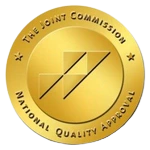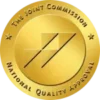Meth Rehab in Murfreesboro, TN
If you or someone you love is struggling with meth addiction, finding the right support is critical for lasting recovery.
At Tulip Hill Recovery, we specialize in methamphetamine addiction treatment in Murfreesboro, offering compassionate, evidence-based care to help individuals break free from the grip of methamphetamine and crystal meth.
Our experienced team understands the complexities of meth addiction and the unique challenges it brings.
At Tulip Hill Recovery, healing is possible, and your journey toward a drug-free life can start today.
What Is Methamphetamine?
Methamphetamine is a powerful, highly addictive stimulant that directly affects the central nervous system.
Originally developed in the early 20th century for medical uses, methamphetamine today is largely associated with illicit drug use and addiction.
It triggers a surge or rush of dopamine in the brain, producing intense feelings of euphoria, increased energy, and heightened alertness — effects that make it dangerously addictive after just a few uses.
On the street, methamphetamine is often referred to as “crystal meth” due to its clear, crystalline appearance resembling shards of glass or bluish-white rocks.
Crystal meth is typically smoked in glass pipes, but methamphetamine can also be snorted, injected, or taken orally. Smoking or injecting meth delivers the drug to the brain extremely quickly, intensifying its effects and increasing the risk of developing a fast, severe dependency.
The rise of crystal methamphetamine addiction has devastated countless individuals and families across the country, including right here in Tennessee.
At Tulip Hill Recovery, we understand the urgent need for specialized meth addiction treatment in Murfreesboro, TN, and we are here to provide compassionate, expert care for those ready to break free from the cycle of meth addiction.
Short-Term Effects of Methamphetamine
Shortly after using meth, individuals typically experience a range of intense, short-term effects, including:
- Euphoria: A sudden rush of intense pleasure and well-being due to the massive dopamine release.
- Hyperactivity: Increased physical energy, restlessness, and a reduced need for sleep.
- Aggression and Irritability: Heightened risk of sudden mood swings, outbursts, and violent behavior.
- Increased Heart Rate and Blood Pressure: Elevating the risk of heart attack or stroke, even after just one use.
- Decreased Appetite: Rapid weight loss can begin quickly with repeated use.
These short-term effects may seem desirable at first, but they come with severe physical, emotional, and cognitive costs, especially as use continues.
Long-Term Effects of Methamphetamine
Over time, regular meth use causes devastating and sometimes permanent changes in the body and brain:
- Brain Damage: Methamphetamine alters brain structures related to emotion, memory, and cognitive function, leading to long-term issues with thinking, decision-making, and mood regulation.
- Psychosis: Extended meth abuse can cause paranoia, hallucinations, delusions, and violent behavior — symptoms that may persist even after stopping use.
- “Meth Mouth”: Severe dental decay is common, leading to broken, rotting teeth and chronic oral infections.
- Skin Sores and Premature Aging: Obsessive skin picking and poor circulation contribute to skin damage and a significantly aged appearance.
- Heart, Liver, and Lung Damage: Increased risk of heart failure, liver disease, and respiratory issues.
- Memory Loss and Emotional Instability: Many long-term meth users experience lasting depression, anxiety, and a loss of pleasure in everyday life.
The lasting effects of meth abuse can be devastating — but with the right help, recovery is possible.
To learn more about the serious risks associated with meth use, visit our resource on the Long-Term Effects of Meth Abuse.
At Tulip Hill Recovery, our methamphetamine addiction treatment in Murfreesboro is designed to help individuals heal not just physically, but mentally and emotionally as well.
Is Meth Addictive?
Methamphetamine is one of the most addictive substances because of the intense dopamine surge it causes in the brain.
Dopamine is the neurotransmitter responsible for feelings of pleasure, reward, and motivation. When someone uses meth, dopamine levels skyrocket to unnatural levels, triggering an overwhelming sense of euphoria, increased energy, and heightened alertness.
This rush is far more powerful and longer-lasting than what is typically experienced with other stimulants like cocaine or ecstasy.
While drugs like cocaine produce a short-lived high that fades quickly, methamphetamine’s effects can last for several hours, sometimes even a full day.
This prolonged stimulation makes users crave repeated doses to maintain the euphoric feeling, leading to binge patterns of use.
Because the brain quickly adapts to the high dopamine levels, tolerance builds rapidly.
Users find they need more meth, more often, just to achieve the same effect — or even to feel normal.
This fast progression to dependency is what makes meth addiction so dangerous. Without professional help, breaking free from methamphetamine’s grip can feel almost impossible.
At Tulip Hill Recovery, we specialize in helping individuals overcome the physical, mental, and emotional bonds of methamphetamine addiction through personalized, evidence-based care.
Signs You May Need Meth Detox
Meth abuse wreaks havoc not just on a person’s physical health but also on their emotional well-being, relationships, finances, and overall quality of life.
What may start as an attempt to boost energy or escape emotional pain can quickly spiral into devastating consequences that affect every area of daily living.
Physically, long-term crystal meth use can lead to serious health problems, including extreme weight loss, severe dental decay (commonly called “meth mouth”), skin sores from obsessive picking, weakened immune system function, respiratory issues, and irreversible damage to the heart, liver, and brain.
Chronic meth users often experience premature aging, making them look years — sometimes decades — older than they are.
Emotionally and mentally, meth abuse increases the risk of anxiety, depression, violent behavior, hallucinations, paranoia, and full-blown psychosis.
The intense highs and crushing crashes can severely disrupt emotional regulation, leading to dangerous impulsivity and unpredictable behavior.
Financially, maintaining a meth addiction quickly drains resources.
Many meth addicts lose their jobs, rack up debts, or engage in illegal activities to fund their addiction. Housing instability and homelessness are unfortunately common among individuals caught in the cycle of methamphetamine use.
Socially, meth abuse strains — and often destroys — relationships with family, friends, and colleagues. Isolation, broken trust, and legal troubles become frequent challenges.
The longer crystal meth abuse continues, the harder it becomes to repair the physical, emotional, and social damage.
That’s why early intervention is so critical. At Tulip Hill Recovery, our methamphetamine addiction treatment in Murfreesboro provides a safe, structured environment where healing and true recovery can begin.
-
Physical Signs of Meth Addiction
- Extreme Weight Loss: Due to a decreased appetite and constant hyperactivity.
- Facial Sores and Skin Picking: A common physical side effect of meth abuse.
- Severe Dental Issues (“Meth Mouth”): Broken, decayed, or missing teeth.
- Dilated Pupils, Twitching, and Hyperactivity: Often noticeable even without recent drug use.
-
Behavioral Signs of Meth Addiction
Emotionally and mentally, meth abuse increases the risk of anxiety, depression, violent behavior, hallucinations, paranoia, and full-blown psychosis.
The intense highs and crushing crashes can severely disrupt emotional regulation, leading to dangerous impulsivity and unpredictable behavior.
- Compulsive Drug Use: Frequent, repeated use of meth despite serious consequences.
- Risky Behavior: Driving under the influence, unsafe sex, or engaging in criminal activity.
- Neglecting Responsibilities: Skipping work, school, or family obligations in favor of drug use.
- Obsessive Activities: Repetitive, purposeless tasks like disassembling electronics or cleaning excessively.
-
Social and Financial Impact
Financially, maintaining a meth addiction quickly drains resources. Relationships with family, friends, and coworkers often deteriorate as trust is broken and responsibilities are ignored. Isolation, conflict, and financial problems usually follow, leaving the individual feeling trapped and alone.
Many meth addicts lose their jobs, rack up debts, or engage in illegal activities to fund their addiction. Housing instability and homelessness are unfortunately common among individuals caught in the cycle of methamphetamine use.
Socially, meth abuse strains — and often destroys — relationships with family, friends, and colleagues. Isolation, broken trust, and legal troubles become frequent challenges.
-
Emotional and Cognitive Warning Signs
- Mood Swings and Aggression: Quick changes from euphoria to intense anger, agitation, or irritability.
- Paranoia and Anxiety: Feeling overly suspicious, fearful, or constantly on edge.
- Psychosis: Experiencing hallucinations, delusions, or bizarre thinking patterns.
- Depression: Crushing sadness and hopelessness during crashes between meth binges.
The longer crystal meth abuse continues, the harder it becomes to repair the physical, emotional, and social damage.
That’s why early intervention is so critical. At Tulip Hill Recovery, our methamphetamine addiction treatment in Murfreesboro provides a safe, structured environment where healing and true recovery can begin.
Timeline and Stages of Meth Withdrawal
Withdrawal from methamphetamine can be one of the most challenging stages of recovery.
Once meth use stops, the brain struggles to adjust to the absence of the intense dopamine surges it had become dependent on.
This crash often leads to powerful physical, emotional, and psychological symptoms, making withdrawal from methamphetamine treatment a critical step that requires medical support.
-
First 24–48 hours:
First 24–48 hours: Symptoms begin shortly after the last use. Intense fatigue, depression, anxiety, and overwhelming cravings set in quickly.
-
Days 3–10:
Days 3–10: Symptoms peak. Individuals may experience extreme exhaustion, disrupted sleep, vivid nightmares, irritability, paranoia, and in some cases, psychosis.
-
Weeks 2–4:
Weeks 2–4: Emotional symptoms like depression, anxiety, and cravings may linger. Energy levels slowly begin to return, but motivation often remains low.
-
After One Month
After One Month, Many physical symptoms improve, but mental health struggles — including difficulty feeling pleasure (anhedonia) — can be ongoing for months if not properly treated.
-
Symptoms of Meth Withdrawal
Every person’s experience with meth withdrawal can vary depending on how long and how heavily they used meth, the purity of the drug, and whether they engaged in polydrug use.
- Severe Fatigue
- Depression and Hopelessness
- Intense Cravings for Meth
- Anxiety and Agitation
- Psychosis (hallucinations, delusions)
- Irritability and Mood Swings
- Sleep Disturbances and Nightmares
- Increased Appetite and Weight Gain
- Cognitive Fog and Difficulty Concentrating
The Importance of Meth Detox and Rehab
The symptoms associated with withdrawal from methamphetamine treatment are not typically life-threatening, but they can be extremely uncomfortable and psychologically overwhelming.
Without professional help, the intense cravings and emotional distress during withdrawal dramatically increase the risk of relapse.
That’s why undergoing a detox for methamphetamine in a medically supervised setting like Tulip Hill Recovery is so important.
Medical detox ensures:
- Safe management of withdrawal symptoms
- Emotional support to navigate cravings and depression
- Immediate medical intervention if psychosis or severe mental health issues occur
- A smoother transition into long-term treatment and recovery planning
For a deeper look at how meth affects the body over time, visit our resource: How Long Does Meth Stay in Your System.
At Tulip Hill Recovery, we offer safe, supportive, and medically monitored detox services to help clients start their recovery journey with the stability they need.
Levels of Care + Dual Diagnosis and Co-Occurring Disorders
At Tulip Hill Recovery, our methamphetamine addiction treatment in Murfreesboro is built around a holistic, evidence-based approach that addresses all aspects of recovery. Here’s what clients can expect:
Drug Detox
At Tulip Hill Recovery, we offer compassionate, medically supervised drug detox in Murfreesboro, TN, designed to help you begin your healing journey safely and confidently.
As a trusted drug and alcohol detox center serving Murfreesboro and the broader Middle Tennessee community, Tulip Hill Recovery provides individualized, evidence-based care in a peaceful, supportive setting.
Our detox programs address your specific needs and are backed by a clinical team that understands how to navigate addiction and mental health and the many complexities they bring.
Partial Hospitalization Program (PHP)
A Partial Hospitalization Program (PHP) is an intensive form of outpatient treatment that provides the clinical support of inpatient rehab without requiring a residential stay.
Designed for individuals who need a high level of care but are stable enough to live at home or in a sober living environment, PHP bridges the gap between inpatient treatment and traditional outpatient therapy.
At Tulip Hill Recovery, our PHP rehab in Murfreesboro typically runs 5 to 6 days per week and offers 30+ hours of therapy.
Intensive Outpatient Program (IOP)
At Tulip Hill Recovery, our Intensive Outpatient Program (IOP) in Murfreesboro is designed to bridge the gap between inpatient treatment and full independence.
IOP provides the structure and accountability necessary for early recovery, while still giving you the flexibility to live at home or in a sober living environment, work, attend school, and rebuild your life outside of treatment.
Whether you’re stepping down from a PHP rehab program or starting outpatient care for the first time, our Murfreesboro IOP offers comprehensive support, personalized care, and a strong community to help you achieve lasting success.
Addiction Treatment Aftercare
An aftercare rehab program is a follow-up plan that helps you stay on track after completing formal addiction treatment for a substance use disorder and any co-occurring disorders.
It’s not just a final step—it’s a continuation of care that helps you stay grounded and supported in early recovery.
With our addiction aftercare programs, paired with our proven treatment methods, you gain practical tools and ongoing check-ins that help you stay strong and avoid relapse.
Dual Diagnosis Treatment
As a leading dual diagnosis treatment center in Tennessee, we specialize in integrated care that treats the whole person, not just the symptoms.
Whether you’re dealing with depression and alcohol use, PTSD and benzodiazepine dependence, or another combination, we’re here to support you.
Our approach to dual diagnosis treatment is grounded in compassion, science, and personal experience.
We provide a safe space to uncover what’s really driving addiction, and we help our clients build the tools they need to recover from both.
Specialized Services
- Trauma Treatment: Many individuals with dual diagnosis have experienced trauma, which can play a significant role in both mental health issues and addiction. Our trauma treatment program is designed to address the underlying pain, helping you heal and move forward in your recovery journey.
- 12-Step Program: The 12-Step Program is a time-tested approach to recovery that provides a strong foundation for lasting sobriety. At Live Again Detox, we incorporate the 12 steps into our treatment plans, offering support and guidance as you work through each stage of recovery.
- Individual, Group, and Family Therapy: Therapy is a cornerstone of dual diagnosis treatment. We offer a range of therapeutic options, including individual therapy to focus on your personal challenges, group therapy to connect with others who share similar experiences, and family therapy to rebuild and strengthen relationships.
- Holistic Treatment: We believe in treating the whole person, not just the symptoms of their condition. Our holistic approach includes therapies such as mindfulness, yoga, and nutritional counseling, which support both your mental and physical well-being.
Related Methamphetamine Blog Resources
Start Meth Rehab today at Tulip Hill Recovery
Frequently Asked Questions — Methamphetamine (Meth) Addiction & Rehab
Signs may include:
- Needing higher doses or more frequent use to achieve the same effect (tolerance)
- Cravings when not using
- Changes in wake-sleep pattern (long periods awake, little rest)
- Poor hygiene, noticeable tooth decay (“meth-mouth”), skin sores
- Sudden mood swings, paranoia, aggression
- Social withdrawal, job or relationship problems, financial difficulty
Yes — when a person dependent on meth stops use, withdrawal symptoms may include:
- Severe fatigue and sleepiness
- Increased appetite
- Intense cravings
- Anxiety, depression, irritability
- Difficulty concentrating or thinking clearly
While meth withdrawal isn’t usually life-threatening, it is very uncomfortable, and the strong cravings significantly increase risk of relapse.
At Tulip Hill Recovery, treatment for meth addiction typically includes:
- A safe intake assessment to determine medical and psychological status
- Individual and group therapy (such as Cognitive Behavioral Therapy and Motivational Interviewing) tailored to stimulant disorders
- Trauma-informed care and dual-diagnosis treatment when mental health issues co-occur
- Residential, partial-hospitalization or outpatient treatment levels, depending on each person’s need
- Aftercare planning, relapse prevention strategies, peer support and sober-living environment referrals
Currently, no medications have been officially approved by the U.S. Food & Drug Administration (FDA) specifically for methamphetamine use disorder. While research continues into medication options, the mainstay of care remains behavioral therapies, support groups and lifestyle interventions.
Relapse is a risk in meth addiction because of the intense nature of stimulant effects, memory/brain changes and environmental triggers. Relapse does not signify failure—it indicates a need to adjust or intensify care. Tulip Hill Recovery emphasizes:
- Strong relapse-prevention planning
- Trigger awareness and coping-skill development
- Ongoing therapy and peer support
- Safe transitions to post-treatment life
Yes — many health insurance plans cover addiction treatment services for stimulant use disorder, including residential care, outpatient therapy and continuing care. Coverage details vary by plan and network. Tulip Hill Recovery’s admissions team works with clients to verify benefits and clarify coverage.
The first step is a confidential screening and assessment where a professional reviews your substance-use history, mental/physical health, support system, and motivation for change. If you or someone you care about is using meth and struggling to stop, reaching out for help is a vital step.
Tulip Hill Recovery offers prompt intake coordination, insurance verification, and personalized treatment planning.
Meth Detox & Stimulant Stabilization in Murfreesboro, TN | Tulip Hill Recovery
Methamphetamine addiction significantly alters dopamine and serotonin regulation in the brain, often leading to severe psychological withdrawal symptoms. Tulip Hill Recovery provides structured meth detox in Murfreesboro, Tennessee for individuals dependent on meth or other stimulants.
Unlike some substances, meth withdrawal is often characterized by emotional and neurological symptoms rather than acute physical danger. Individuals may experience severe depression, fatigue, paranoia, agitation, insomnia, vivid dreams, suicidal thoughts, and intense cravings during the crash phase.
Because relapse risk is highest during this emotional crash period, medical supervision and psychiatric support are critical.
Our clinical team provides 24/7 monitoring, sleep stabilization support, psychiatric evaluation, and therapeutic interventions to manage mood instability and post-acute withdrawal symptoms (PAWS). Co-occurring disorders such as PTSD, anxiety, or bipolar disorder are addressed simultaneously.
Following detox stabilization, clients transition into residential treatment to address behavioral patterns, trauma, and relapse prevention planning in a structured setting.
Admissions support is available at any time for confidential guidance.
All content published on Tulip Hill Recovery website pages is provided for informational purposes only and should not be interpreted as medical, psychological, or legal advice. This information is not intended to diagnose, treat, cure, or prevent any disease or condition and should not replace consultation with licensed healthcare professionals.
Addiction is a chronic, relapsing medical condition that requires individualized care. Treatment approaches, detox protocols, and rehabilitation services vary depending on numerous factors unique to each individual. No information on this website should be relied upon to make treatment decisions without professional guidance.
If you are experiencing an emergency situation, including overdose, withdrawal complications, suicidal ideation, or immediate risk to yourself or others, call 911 immediately. Tulip Hill Recovery does not provide emergency medical services online or via website communication.
Never attempt to discontinue substance use or begin detox without proper medical supervision. Withdrawal can cause serious medical complications. Any information regarding detoxification is general in nature and does not substitute for physician-directed care.
Insurance information presented on this website is intended solely to assist users in understanding potential coverage options. Coverage is subject to verification, medical necessity determinations, and policy limitations. Tulip Hill Recovery encourages direct contact with our admissions specialists to confirm benefits and eligibility.
We do not guarantee treatment outcomes, length of stay, insurance approvals, or placement availability. Outcomes depend on numerous clinical and personal factors.
External links are provided for convenience and informational purposes only. Tulip Hill Recovery assumes no responsibility for third-party content or practices.
Use of this website does not establish a doctor-patient or therapist-patient relationship. Recovery requires professional support and individualized care.
The content available on Tulip Hill Recovery pages is designed to provide educational information related to addiction, detoxification, rehabilitation, mental health treatment, and recovery support. This information should not be interpreted as professional medical advice or treatment recommendations.
Addiction treatment is highly individualized. Detox and rehab needs vary significantly based on health history, substance use patterns, and mental health considerations. Information provided is general and may not apply to all individuals.
If an emergency arises — such as overdose, severe withdrawal symptoms, or immediate danger — call 911 without delay. Online resources are not a substitute for emergency medical care.
Medical detox should always be conducted under professional supervision. Attempting detox without medical oversight can be dangerous.
Insurance information is provided as general guidance only. Coverage varies by plan and carrier. Tulip Hill Recovery encourages all individuals to verify benefits directly with admissions staff.
Recovery outcomes are not guaranteed. Treatment effectiveness depends on many factors including engagement, clinical needs, and aftercare support.
References to external resources do not imply endorsement. Tulip Hill Recovery is not responsible for third-party content.
Website use does not establish a provider-patient relationship.
Start Your Journey to Healing Today

Call or message us

Free assessment

Insurance check

Choose a start date
Get Family Support Now
Supporting Families Through Recovery
We understand addiction affects the whole family. Our comprehensive family program helps rebuild trust and restore relationships.
Weekly Family Therapy Sessions
Educational Workshops
Support Groups
Communication Skills Training
 |
Medically Reviewed By:
Board-Certified Psychiatrist and Addictionologist
|
 |
Clinically Reviewed By:
Board Certified Clinical Social Worker
|
Our Verifications & Affiliations
Yes, Your Insurance Covers Detox and Rehab Treatment.
Get Family Support Now
Supporting Families Through Recovery
We understand addiction affects the whole family. Our comprehensive family program helps rebuild trust and restore relationships.
Weekly Family Therapy Sessions
Educational Workshops
Support Groups
Communication Skills Training












